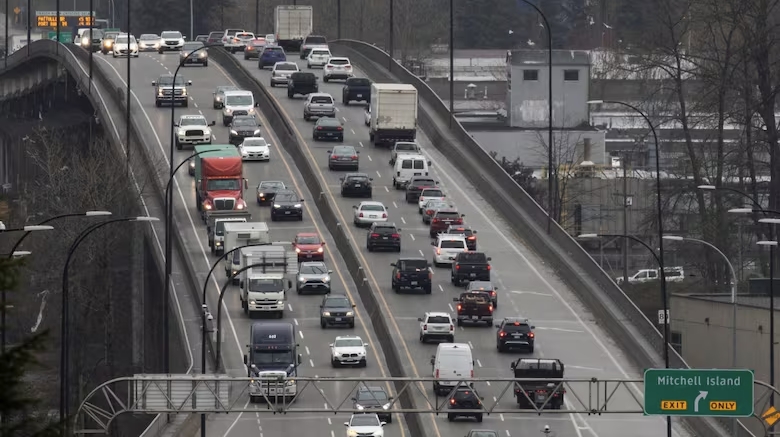Could Congestion Pricing Solve Metro Vancouver’s Transit Funding Crisis?
Sarah Desjardins
1/29/20252 min read


Metro Vancouver’s public transit system is facing financial uncertainty, with TransLink projecting a $600 million operating deficit by 2026. Some transportation experts believe that congestion pricing—charging drivers to use major roadways—could not only address this shortfall but also reduce the region’s growing traffic problem.
New York City recently introduced a congestion pricing system, charging drivers up to $9 USD to enter Manhattan south of Central Park during peak hours. The revenue is being reinvested into transit infrastructure. After just one week, traffic in the designated tolling zone dropped by 7.5 percent, equating to approximately 43,000 fewer cars on the road per day, according to officials from the Metropolitan Transportation Authority.
Robin Lindsey, a professor emeritus at UBC’s Sauder School of Business, noted that while it is still early, initial data from New York shows improvements in vehicle flow, transit reliability, and pollution reduction.
Metro Vancouver’s Congestion and Transit Funding Challenges
Despite these promising results, TransLink CEO Kevin Quinn emphasized that there is currently no political momentum for such a program in Metro Vancouver.
“There are no plans right now to institute mobility pricing in this region—it’s not supported by the Mayors’ Council,” Quinn said. “People are watching what’s happening in New York, but as of now, it’s not on the table.”
According to the TomTom Traffic Index, Vancouver has the second worst traffic congestion in North America, behind only New York City. At the same time, TransLink is struggling with declining revenue from traditional sources like fuel taxes, leading to warnings of significant service cuts if a new funding model isn’t found.
A report to the Mayors’ Council warned that budget constraints could result in a 50% reduction in bus services, a one-third cut in SkyTrain and SeaBus frequency, and the potential elimination of the West Coast Express commuter rail service. While the federal government has provided funds for capital improvements, there is no dedicated support for operational costs.
Could Congestion Pricing Be the Solution?
A 2018 study commissioned by TransLink and the Mayors’ Council estimated that a congestion pricing system, with charges ranging from $3 to $8 per day, could generate between $1 billion and $1.6 billion annually. The study also projected a 20-25% reduction in traffic congestion.
David Cooper, a transit consultant and former TransLink manager, argued that such a program could do more than just fill the current budget gap—it could help fund long-term transit expansion.
“You could generate a billion dollars in revenue from this, which would not only cover the current funding crisis but also support projects like the SkyTrain extension to UBC or a rapid transit link to the North Shore,” Cooper said.
However, political resistance remains a significant barrier. In 2022, Vancouver’s city council voted against further exploring congestion pricing, citing a lack of public support. Instead, city officials are focusing on alternative congestion-reduction measures such as road widening and expanding bike lanes.
Public Perception and the Path Forward
Advocates of congestion pricing, like Nate Wallace from Environmental Defence, argue that opposition often diminishes once residents see the benefits.
“People initially view it as a tax on commuting, but once implemented, support tends to rise significantly,” Wallace said. “If your $5 or $10 charge means your commute time is cut in half, many start to see the value.”
While congestion pricing is not currently on Metro Vancouver’s agenda, the region’s growing transportation challenges may force policymakers to reconsider. Without a sustainable funding model, transit users could face major service reductions in the coming years.
News
Stay updated with the latest BC news stories, subscribe to our newsletter today.
SUBSCRIBE
© 2025 Innovatory Labs Inc.. All rights reserved.
LINKS
